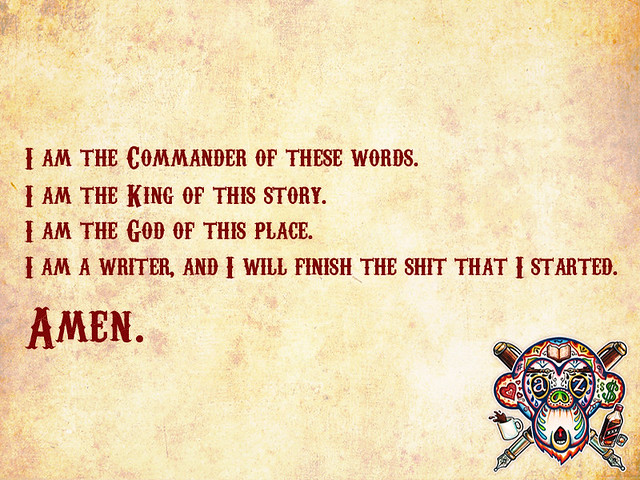
My heart goes out to aspiring writers who are desperate to write—but can’t. So many freeze—and eventually give up in despair. So many feel so alone—regardless of their support system. Only writers understand writers.
I’m sure that is not entirely true—but it is mostly true. Love is a great stand-in.
I have been trying to work out some techniques to help the novice break out of this frozen state. People tend to refer to it as ‘writer’s block’—and, therefore, normal—but it really isn’t.
Writer’s block is when you normally can write but are temporarily stopped because of some circumstance (the death of a loved one comes to mind—and I’m thinking of a specific situation).
Being unable to start in the first place is entirely different—and we really need a different name for it. It is more akin to stage fright—so how about ‘word fright?’ Either way, it is a mistake—but entirely understandable.
Newbies tend to think that they have to have something to write about when you start—but the truth is that you don’t. That all can come later. Initially, you are trying to train your mind to cooperate with your fingers—no more than that.
Actually. I am wrong. Even before that early phase, you need to prepare your mind for the rigors that lie ahead. Meditation and yoga could be where you should start. As I have commented elsewhere, writing—like most difficult occupations—is hugely about managing your fears.
When I started, I did a great deal of walking—at least two hours every day in all weathers. I found that calming, and it gave me the chance to think a great deal. In effect, I was training my mind—though without consciously realizing it. I had no writing mentor at that stage (nor much of one later). But I did read extensively—to my great benefit—and I took the long view. I knew that learning to write to the standard I aspired to would take a very long time and would involve a lifetime commitment.
How right I was—and I’m still learning (and failing). How did I know? Partly though reading—and partly though being aware of my own limitations. I knew that given enough time I could become competent. I wanted to become good—a real professional. I didn’t dare to think I could become great. I still don’t. That may be a character flaw. A writer should set the bar too high. The challenge is the pleasure.
Let me tell you, it is more satisfying to fail at writing than to succeed at many other activities.
But the vital thing for an aspiring writer to realize is that you need to start by preparing your mind.
No comments:
Post a Comment